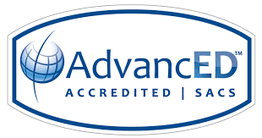What are the Haygood Preschool hours of operations?
Haygood Preschool opens at 8:50 am and closes at 1:10 pm, Monday – Friday.
Do you offer carpool?
Yes, the Preschool does offer morning and afternoon carpool. Morning carpool runs from 8:50 am – 9:10 am and afternoon carpool runs from 12:50 am – 1:10 pm. The only exception is the children enrolled in our Toddler class, who must be dropped off and picked up in their classroom each day. Our Pre-K and Kindergarten Kickstarters classes are picked up from the playground in the afternoon, weather permitting.
When should I apply for admission to the Preschool?
Open registration begins in November each year. Tours of the Preschool program run from November through February. The Preschool does not maintain rolling admissions from the previous school year, so each family must re-apply each year. If we are unable to accept your child during the initial registration, he/she will be placed on a wait list. We frequently have openings that become available in mid-March through early April. We accept children to our wait list at any time during the year.
When do parents receive acceptance letters?
Acceptance letters and wait list letters are mailed in January. New families will be required to pay a non-refundable May tuition for the following school year to secure their space in the Preschool.
In addition to language, what other enrichment programs are offered?
Spanish, yoga and science are available to children ages 3 and older, and every child receives music weekly.
Haygood is proud to offer weekly science instruction for our 3’s through Kindergarten Kickstarter classes. Our hands-on, inquiry-based STEM activities foster a sense of wonder, develop scientific literacy, and cultivate natural curiosity and lifelong learning from an early age. Lessons reinforce literacy, math, graphing, counting, and measuring skills as well as being fun and engaging!
What do we do in Preschool?
Each preschool class is tailored to the specific, age-appropriate milestones of its age group. But in general, each class participates in the following:
- Circle time is a group gathering during which we share our ideas, plans and observations. Circle activities are designed to stimulate a child’s thinking, enrich their social skills and expand their attention spans.
- Gross-motor activities give children the opportunity to use their muscles — as well as their imaginations — as they engage in fun, healthy exercises, like running, jumping, and climbing.
- Fine-motor activities help improve small muscle development and eye-hand coordination. Some common items used to develop fine-motor/manipulative skills include puzzles, beads, laces, pegboards, crayons, and child-safe scissors.
- Art activities help youngsters creatively express their thoughts and feelings. They help reinforce fine-motor skills and concept development with regard to colors, shapes and size relationships.
- Dramatic play helps children creatively express themselves, practice life skills, improve social skills, increase self-esteem, build vocabulary and solve problems.
- Music activities improve youngsters’ listening skills, creative expression and social skills. In music, children can explore sound, volume, tempo and rhythm.
- Science activities offer children many hands-on opportunities for observation, exploration, investigation, making predictions and experimentation.
- Sand and water activities allow students to experiment with textures and properties of different substances. These activities also foster the development of math, science and language skills.
- Block play gives children experience with many different concepts, like shape and size discrimination, spatial relationships, number skills, balance, organization, cause and effect and classification. Cooperative play skills, problem solving and creativity are also developed during block play.
- Story time is designed to help develop an appreciation and enjoyment of literature. Reading activities enhance children’s vocabulary and comprehension skills while expanding their knowledge base.
